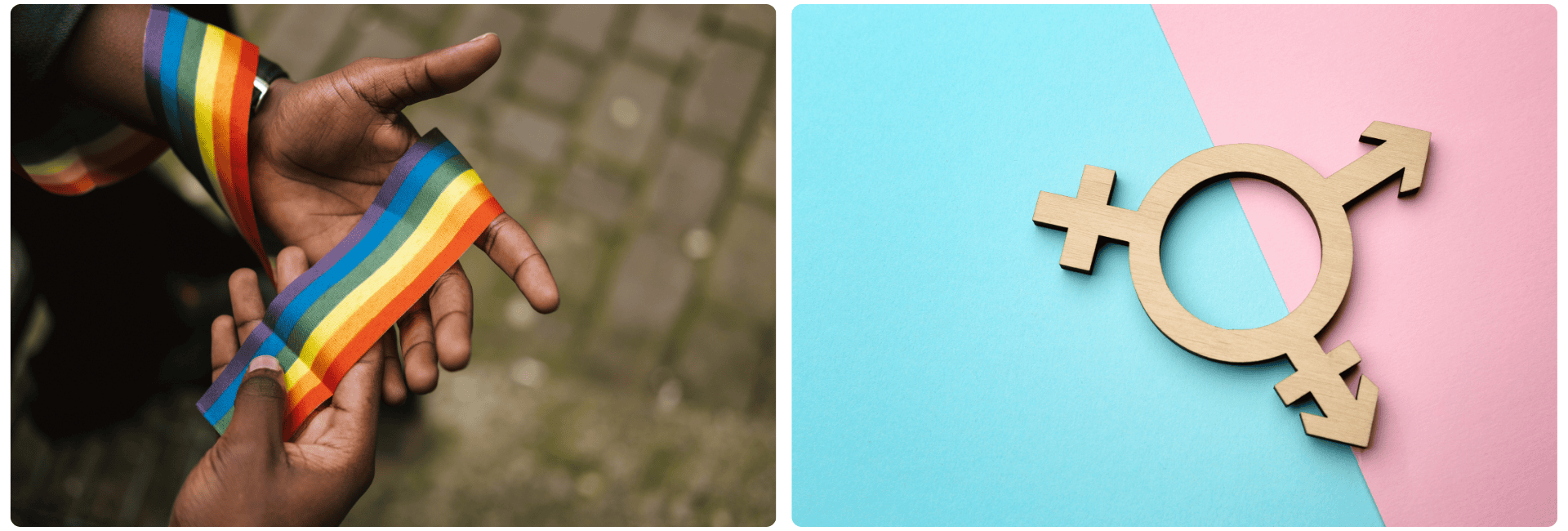
The process of gender transition
- Self-discovery and acceptance
- Professional guidance and resources
- Medical considerations and treatments
- Social transition and name change
- How do surgeons decide on the specific surgical technique for gender-affirming surgery?
- What are the major challenges in creating functional genitalia in gender-affirming surgery?
- How is post-surgical sensation in the genital area preserved or restored after gender-affirming surgery?
- What are the long-term maintenance and follow-up requirements after gender-affirming surgery?
- What are the main risks of complications during or after gender-affirming surgery?
- Challenges and triumphs
- The role of society
In recent decades, society has made significant strides in gender diversity and acceptance. One of the most personal and profound journeys within this spectrum is gender transition. This process, wherein an individual aligns their gender identity with their inner self, is unique for everyone and often involves emotional, physical, and social changes.
Self-discovery and acceptance
The process often begins with self-discovery, becoming aware of a misalignment between the assigned birth gender and one's inner gender identity. This phase can vary in duration and intensity, but it is a crucial first step toward self-acceptance. Embracing one's identity and acknowledging the need for change form the foundation of the journey. This introspective phase allows individuals to explore their authentic selves and lays the groundwork for the subsequent steps in the gender transition process.
Professional guidance and resources
For many, professional guidance is essential. Psychologists, therapists, and gender experts can play a crucial role in providing emotional support and helping individuals navigate complex feelings. Additionally, numerous resources, from literature to online communities, offer a wealth of information and support.
Medical considerations and treatments
For those opting for medical steps in their transition, the process often includes hormone therapy. This may involve administering gender hormones such as testosterone or estrogen, depending on the desired gender identity. Surgical procedures, like chest surgeries or gender-affirming surgeries, are also options, though not everyone takes these steps.

Social transition and name change
Alongside medical considerations, individuals often undergo a social transition. This involves adjusting their appearance, clothing, and even choosing a different name that better reflects their gender identity. Support from friends, family, and colleagues plays a crucial role in facilitating these social changes. Building a network of understanding and affirming individuals contributes significantly to the emotional well-being of those undergoing a social transition, fostering an environment of acceptance and validation for their authentic selves.
How do surgeons decide on the specific surgical technique for gender-affirming surgery?
The choice of surgical technique depends on several factors, including the patient’s anatomy, health history, desired aesthetic outcome, and goals for physical functionality. For transfeminine (male-to-female) patients, common techniques include penile inversion vaginoplasty or the more complex peritoneal or sigmoid colon vaginoplasty. For transmasculine (female-to-male) patients, metoidioplasty or phalloplasty can be considered, with variations depending on the type of tissue grafts and urethral lengthening involved.
What are the major challenges in creating functional genitalia in gender-affirming surgery?
One of the main challenges is ensuring that the created genitalia not only look aesthetically pleasing but also function well. For vaginoplasty, this includes ensuring vaginal depth and sensitivity, while in phalloplasty, the focus is on creating a phallus capable of urination and sexual function. Achieving these goals involves complex microsurgery to connect nerves, vessels, and in some cases, constructing a urinary channel (urethra) or incorporating erectile devices, which can present complications like strictures or nerve damage.
How is post-surgical sensation in the genital area preserved or restored after gender-affirming surgery?
Surgeons prioritize nerve preservation and reconnection to maintain or restore sensation in the genital area. For transfeminine surgeries, the penile or scrotal tissue is typically repurposed, and the nerves responsible for sensation are carefully preserved and reconnected to the newly formed vagina and clitoris. In transmasculine surgeries, nerves from the clitoris are often integrated into the constructed phallus to enable erogenous sensation, though this depends on the surgical technique and patient anatomy.
What are the long-term maintenance and follow-up requirements after gender-affirming surgery?
Long-term care often includes regular medical check-ups to monitor healing, address complications, and maintain functional outcomes. For transfeminine patients, vaginal dilation is required to maintain vaginal depth and prevent stenosis, especially in the early months after surgery. Transmasculine patients may need periodic adjustments or maintenance of implants, such as those for erectile function. Hormone therapy is usually continued post-surgery to maintain secondary sex characteristics and overall health.
What are the main risks of complications during or after gender-affirming surgery?
Complications can vary depending on the specific surgery but may include infections, poor wound healing, blood clots, and issues with urinary function (such as strictures in phalloplasty or fistulas in vaginoplasty). In some cases, additional surgeries may be needed to correct complications, such as revising the vaginal opening, treating urinary complications, or addressing issues with penile implants or grafts. Comprehensive pre-surgical planning and post-operative care are essential to minimize risks.
Challenges and triumphs
The gender transition process is not without challenges. Individuals may face discrimination, misunderstanding, and even rejection. It's important to acknowledge these obstacles and understand that each journey is unique. Nevertheless, there are numerous inspiring stories of triumph and empowerment from people who have found their way to a more authentic existence. Recognizing and celebrating these stories can provide valuable support and encouragement for those navigating their own paths toward self-discovery and acceptance.
The role of society
An essential aspect of the process is creating an inclusive society that celebrates and respects gender diversity. Education, awareness, and promoting positive representation are crucial to creating a supportive environment for those undergoing gender transition.
In conclusion, the gender transition process is a complex, emotional journey that requires profound self-discovery and acceptance. Through professional guidance, medical considerations, and social changes, individuals can strive for a life in harmony with their inner identity. It is a journey that, despite its challenges, speaks to courage, resilience, and the power of self-expression.


